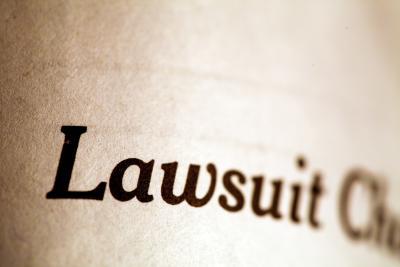Vendee’s Lien May Help Buyer Recover Earnest Money Deposit
Vendee’s Lien May Help Buyer Recover Earnest Money Deposit
By Bryan Mashian, Esq
If the seller of a property refuses to refund the buyer’s earnest money deposit after the buyer cancels the escrow, the buyer cannot rightfully tie up the property in litigation by suing for specific performance and recording a lis pendens, since the buyer has canceled the contract. Typically, the escrow holder will not release the buyer’s funds based on the buyer’s unilateral instructions, and will require signed mutual instructions. To exert pressure on the seller to refund buyer’s money, the buyer may still be allowed to record on the property a special lien called a Vendee’s Lien pursuant to California Civil Code Section 3050.
The buyer under a contract to purchase property acquires an equitable estate in the property. If the buyer has paid part of the purchase price, the buyer is entitled to return of the portion of the price paid when there is a failure of consideration, if the seller is unable to perform the contract, or if the seller commits fraud.
The buyer can enforce and record a Vendee’s Lien on the property to secure the payment of the amounts due to the buyer. The amount secured by the buyer’s Vendee’s Lien is the amount paid on the purchase price. But, the lien is not available if the buyer is in default under the contract.
The Vendee’s Lien arises on the date of the contract of sale and has priority over the liens or interests of third parties who acquired their lien or interest with knowledge of the contract. The Vendee’s Lien, however, is junior to the title, liens, or interests of subsequent bona fide purchasers and lenders. So, to prevent losing priority, the buyer needs to act promptly in filing an action and recording the Vendee’s Lien.
A lis pendens recorded pursuant to an action for specific performance by a buyer typically cannot be bonded. Also, most title insurance companies will not issue a title insurance policy that does not except from its coverage the claims under the pending litigation based upon the seller’s indemnity or other similar assurances.
But, since the Vendee’s Lien secures payment of money, the seller can provide a bond or other collateral satisfactory to the title insurance company to write around the Vendee’s Lien. So, the seller can still sell the property to another buyer. But, to deliver a “clean” policy of title insurance to the next buyer, the seller will probably have to provide a bond and pay the premium for the bond. The seller having to incur these costs provides the buyer the needed leverage to persuade the seller to return the buyer’s earnest money deposit.
If the property is one to four residential units at least one of which at the time the escrow is created is to be occupied by the buyer, then as additional leverage, the buyer may seek punitive damages against seller under California Civil Code §1057.3. If seller does not sign the necessary documents to release funds on deposit within 30 days following a written demand, then the seller is liable for the amount of the funds deposited in escrow not held in good faith to resolve a good faith dispute, plus damages of treble the amount of these funds up to $1,000, and reasonable attorney’s fees incurred in any action.
The seller is not liable for failure to return funds deposited in escrow if the funds are withheld in order to resolve a good faith dispute. “Good faith dispute” means a dispute in which the trier of fact finds that the party refusing to return the deposited funds had a reasonable belief of his or her legal entitlement to withhold the deposited funds.
Finally, most purchase and sale agreements provide that the prevailing party in any litigation can recover attorney’s fees and costs. Recovery of these amounts will also provide an added incentive for the seller to promptly return the buyer’s earnest money deposit.




































